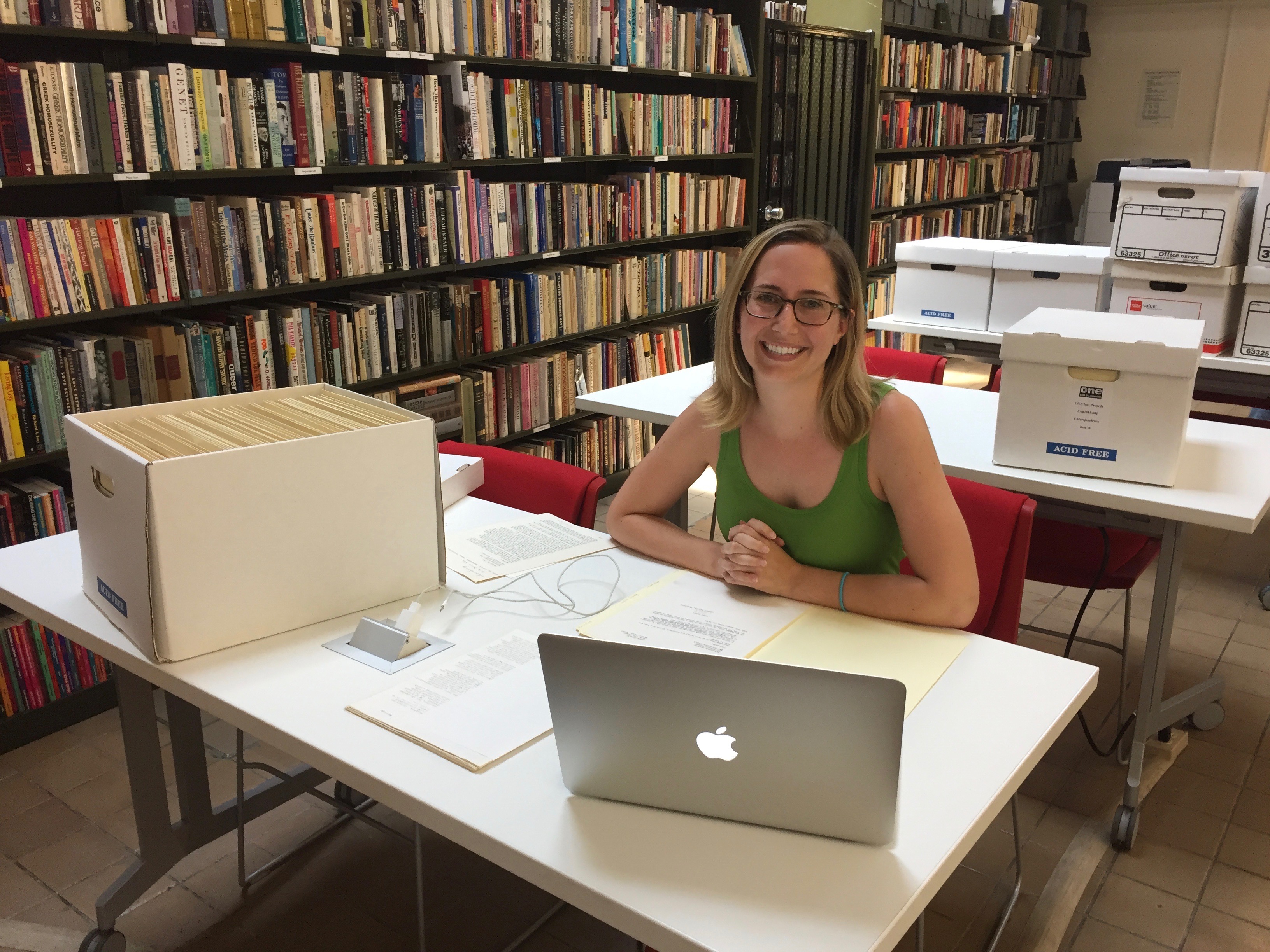This post is part of a series where Rutgers grant and/or fellowship winners are invited to share their thoughts and experiences with the process of applying for funding in graduate school.
By Brenann Sutter

Hello! My name is Bren Sutter and I am about to begin my final year of graduate studies in the History Department at Rutgers, under the supervision of my advisor Dr. Rachel Devlin. Rutgers is unrivaled in the history of women and gender, and I am continuously grateful for the opportunity to work closely with so many of the top scholars in my field.
My dissertation, “Consuming the Centerfold: Sexuality and the Fantasy of the American Good Life,” is a cultural history that forefronts the voices and experiences of black men, gay men, white women, black women, and lesbians as they navigated the changing sexual ethos in the second half of the twentieth century.
For nearly all of American history, the story of marginalized people’s sexuality has not been told in their own words. My project privileges the perspectives of marginalized men and women, and in so doing, highlights the substantial contributions they have made to modern American sexual culture. After graduation, I hope to secure a tenure-track teaching position.
My experiences with the world of funding
During my graduate career at Rutgers, I have received several internal and external fellowships and awards including the Rutgers University Excellence Fellowship, the Phil Zwickler Memorial Research Grant from the Rare and Manuscript Collections at Cornell University, the Rutgers Off-Campus Dissertation Development Award, and most recently, the Mellon Pre-Doctoral Fellowship in Women’s History from The New-York Historical Society.
These funding opportunities have given me the resources to pursue historical documents in archives all across the country. They have also granted me financial security and peace of mind, allowing me to prioritize my academic progress.
My advice for students who may be applying for fellowships and grants
Often the greatest challenge with applications is transforming a complex project into a concise and well-articulated proposal. Our familiarity with our research, as well as our own intellectual and emotional investments, can cause us to muddle key concepts or take assumptions for granted. The easiest and surest way to ensure clarity in your applications is to send your materials to a trusted friend or colleague to read before submission. Ideally, share your materials with someone outside of your field—they will let you know if your writing is convincing to a nonspecialist. Remember, you never want the application reviewer to be the first person to read your work.
GradFund’s peer advising system is also an excellent resource to give you feedback on your application drafts. My fellowship advisor, Dawn Wells, helped me fight my natural tendency to downplay my accomplishments. She reminded me that a grant application is precisely the place to enthusiastically promote your achievements and experience. After all, your goal is to show why not just your project, but you, merit funding.

